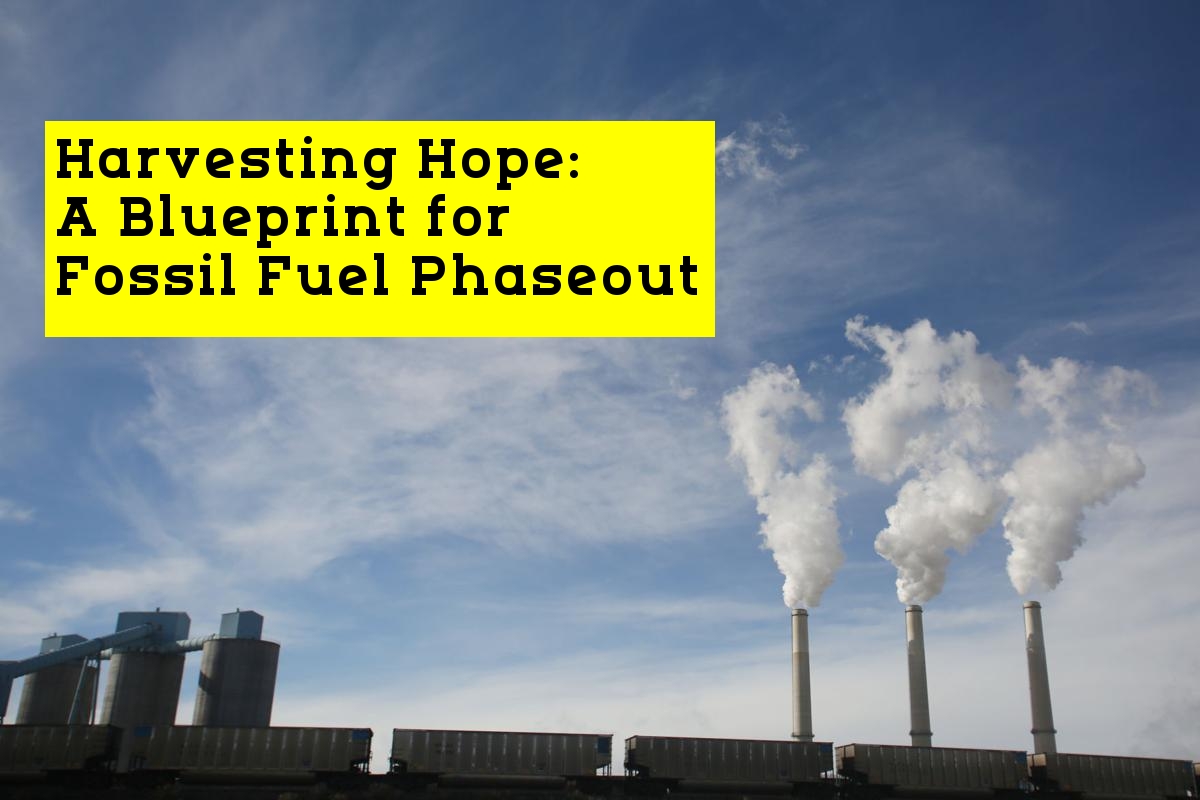Fossil Fuel phaseout!! Is it possible?
The thing is, fossil fuels (well, those that in fact are currently “locked away” safely underground) represent carbon that was extracted from the CO2-laden atmosphere of the ancient Earth. Leaving them there is far more efficient than any plan to, essentially, produce the equivalent of those fossil fuels (whether extracted from the atmosphere, harvested biomass, or whatever) and put them deep underground. We don’t “have to” stop burning fossil fuels, but it’s almost surely the most efficient thing to do.
I am not taking issue with the distinction between opinion and fact, but thus far, carbon capture has been a miserable failure. There is a reason that the industry very carefully uses the language of “potential carbon capture” when describing various technologies. Because they understand that shoving CO2 into the ground at every generation site is no guarantee that it will stay there. Additionally, many capture schemes only use the sequestered byproducts to increase the extraction of fossil fuels in and around the sequestration site, further exacerbating the problem.
This is such a simple thing that some highly intelligent people are getting wrong. Sort of like when I see something flying through the sky and I’m not quite sure of what it is, I might call it a UFO. This doesn’t suggest anything at all about space ships or extraterrestrial lifeforms. I’m literally saying that it’s something flying, and I don’t know what that something is. Also, I love how the artist’s rendition of the direct carbon capture plant has a boatload of solar panels powering it. I’m not some smart guy, but I’m willing to bet a heck of a lot less CO2 will be causing trouble if those panels are used to power homes instead of CO2 scrubbing modules.
Navigating the Fossil Fuel Phaseout and Carbon Capture Revolution
The most efficient carbon capture I’ve read about has been the huge heat exchange-based one, which one of the UK Unis worked on. It was about twice as efficient as the chemical-based method. I don’t think just biocapturing works; we’ve already interfered with nature and damaged it. It might be better to simply store the air in compressed tanks and use that as a battery (as some companies already do, e.g., natural gas), but this time we use compressed gas to drive turbines. Also, since it is already in the atmosphere and having an effect, it seems prudent to try and remove it.
I think the issue is that he was not speaking as a scientist to a scientific audience. He was speaking as someone with extreme vested interests in fossil fuels, heading up an international climate conference where his words would be widely consumed by various organizations around the world. Many of those organizations will not respect the nuance in his ‘technically correct’ statements and will instead use this as further fuel for the climate change denier bonfire.
Is that argument not like: I pull the trigger of a gun, but my action kills, but the fast-moving bullet is to blame? Burning fossil fuels with the produced carbon dioxide is the problem, and the industry has for years tried to suppress the harmful effects and used their influence and power to keep the business running. They knew better.
As an engineer, if a scientist comes to me and says that there is too much CO2 in the atmosphere and we have to reduce it, I have to start to figure out ways to reduce it. If I do my analysis to determine the different means of reducing CO2, and by far the cheapest and fastest way of achieving that goal of reducing CO2 is to stop burning fossil fuels, then that is what we communicate. I can also say there are other methods, and here are the costs and ramifications, but it doesn’t make sense to go in that direction since the other solutions are not feasible, affordable, or have an insignificant impact.
The scientist may say the fossil fuel phase-out is not the only solution since the issue is CO2 and not the fossil fuel phase-out. But the engineers can say that there are no other practical solutions at this time. Whether it is engineers or scientists, there should be concern since no one is coming up with a solution to the problem. We are driving toward a cliff and arguing whether we should take our foot off the gas pedal or apply the brakes, but the distance to the cliff is getting shorter and shorter as we continue to argue. The fact is that the cliff is there.
In examining the role of oil in our modern society, it becomes evident that its significance extends far beyond its commonly recognized function as a fuel. While oil undeniably plays a pivotal role in meeting our energy demands, it is crucial to appreciate the myriad other applications that underscore its indispensability. From serving as a primary feedstock in the production of petrochemicals, which in turn contribute to the manufacturing of an extensive array of products such as plastics, synthetic materials, and pharmaceuticals, to being an essential component in lubricants, asphalt, and even fertilizers, the versatility of oil underscores its integral role in our daily lives.
The intricate web of interconnections between oil and various industries underscores the complex and multifaceted nature of our reliance on this precious resource. Thus, any comprehensive discussion on the future of energy must not only acknowledge the imperative to transition towards sustainable alternatives but also recognize the intricate tapestry of dependencies that make oil an irreplaceable cornerstone in the mosaic of modern civilization.
Storing carbon from trees is possible even with primitive techniques such as charcoal kilns. That means that all countries can contribute to the effort to remove CO2 from the carbon cycle.
I would consider that world governments are asked to make plans that are scientifically viable and economically viable, among other things. The scientists can claim that science says the plan doesn’t work. Economists can claim that economics says the plan doesn’t work. I don’t think it’s such a big step to get from ‘science says we need to eliminate fossil fuels to reach targets’ to ‘science says the only viable plans to reach targets are those that eliminate fossil fuels’.

